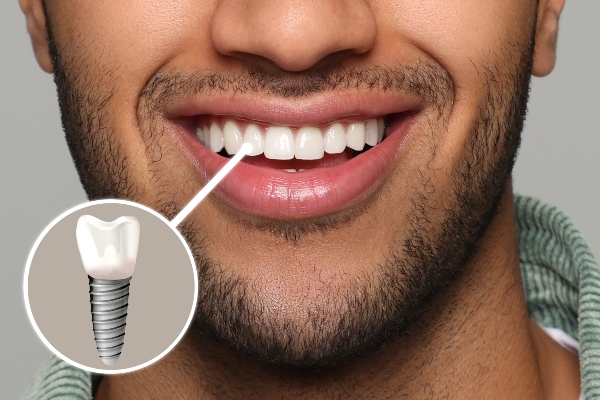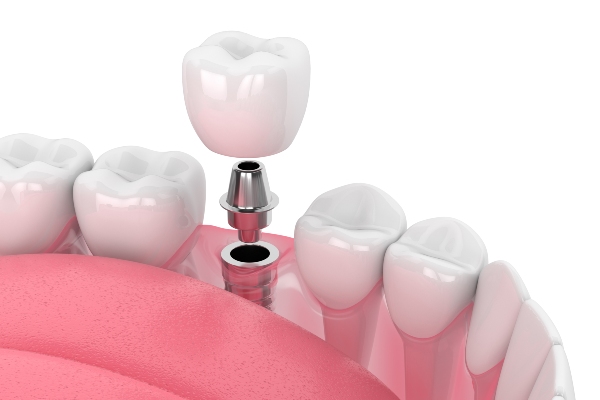How Important Is Getting Checked for Gum Disease?

When it comes to having good teeth, gums, and overall oral health, getting checked for gum disease is an important preventative measure. Factors that can increase a person’s risk of gum disease include genetics, oral hygiene, and how often they visit a dentist for checkups.
Many people often find themselves wondering how frequently they should get checked for gum disease and how important these checkups are. Dentists perform checks whenever a patient gets a routine dental examination. Early detection of gum disease is particularly important because the first stage, gingivitis, can be reversed by performing appropriate treatments.
Figuring out how often you should be examined for gum disease
Dentists recommend getting your mouth checked out by a dentist twice a year. During these biannual checkups, the dentist will perform a visual examination, looking for signs of gum disease. The dentist might also use tests, like X-rays, to evaluate how healthy the patient’s teeth roots and gum tissues are.
These checkups help diagnose oral issues like gum disease, tooth decay, and structural damage to teeth in their early stages. Generally speaking, the earlier that a dental issue is diagnosed, the cheaper it is to have it treated. That is especially true for gum disease because its first stage can be reversed with teeth cleanings and improved oral hygiene. Treating gum disease beyond that point can become more expensive because it can become chronic.
The ways that a dentist might diagnose a patient for gum disease include the following.
- A dentist can detect gum disease by looking at the patient’s gums, searching for signs of inflammation or tenderness
- Dentists use a small ruler known as a probe to look for and evaluate gum pockets that have developed around a patient’s teeth; when a person’s gums are healthy, these pockets should be no deeper than 3 millimeters, so a patient’s gum pockets being deeper than that is often a sign of gum disease
- Dentists also talk to patients about their medical history, medications that they are taking, and their habits when diagnosing gum disease; health conditions like diabetes can make a person more susceptible to gum disease, and habits like smoking can also increase a person’s risk of developing the condition
- X-rays are used to examine developments taking place underneath a patient’s gums; such tests can reveal deep gum pockets and damage to bone structures in the mouth due to periodontal disease
Treatment options
The goal of treating gum disease is to stop the infection in its early stages and to control it during the advanced stage. The severity of the patient’s condition often determines which treatment options the dentist explores. Treatments often recommended for patients who are dealing with gum disease include:
- Teeth cleaning
- Deep cleaning
- Gum flap surgery
- Gum grafts
- Bone grafts
- Pinhole surgery
Good oral hygiene goes a long way when it comes to keeping gum disease under control at any stage. Dentists recommend brushing twice daily, flossing daily, and using an antibacterial mouthwash.
Save your gums
Dealing with periodontal disease? Give us a call or visit our Hemet clinic to learn more about how our dentist can stop the infection or bring it under control.
Request an appointment here: https://hemetdentalcenter.com or call Hemet Dental Center: Brian Stiewel DDS, INC. at (951) 707-4366 for an appointment in our Hemet office.
Check out what others are saying about our dental services on Yelp: Gum Disease in Hemet, CA.
Recent Posts
The CDC states that gum disease, also known as periodontal disease, is one of the leading oral infections in the United States. In addition, the National Institute of Health cites it as the most common culprit for adults losing teeth. Because the early stages of periodontal disease often do not have noticeable symptoms, many patients…
Gum disease is one of the most common oral health issues. Many individuals, however, are unaware that they are dealing with the condition. Gum disease is believed to affect millions of adults in the United States, according to the International Journal of Health Sciences. Many people who do not currently have gum disease may develop…
The CDC reports that almost half of adults in the United States have a form of gum disease, also known as periodontitis or periodontal disease. For adults over 65, this number increases to 70%. This rampant disease is largely preventable, yet the subtle signs and symptoms in the early stages leave many patients unaware that…
According to a study conducted by the Centers for Disease Control (CDC), more than 47 percent of adults 30 and older have some form of gum disease. Fortunately, gum disease can be treated and often reversed in most cases. Dealing with gum disease should include improvements in oral hygiene, making smart dietary choices, and regular…


